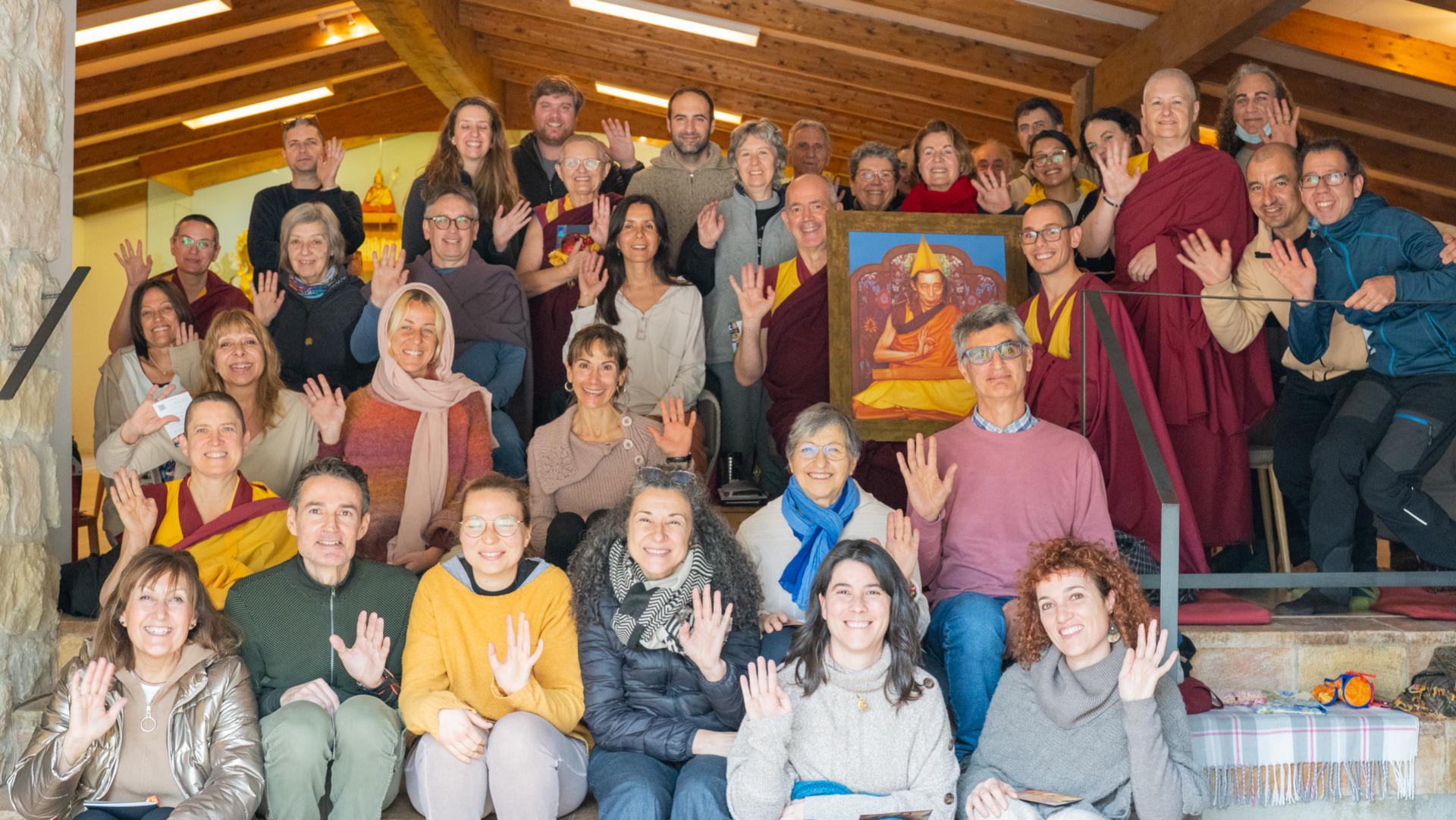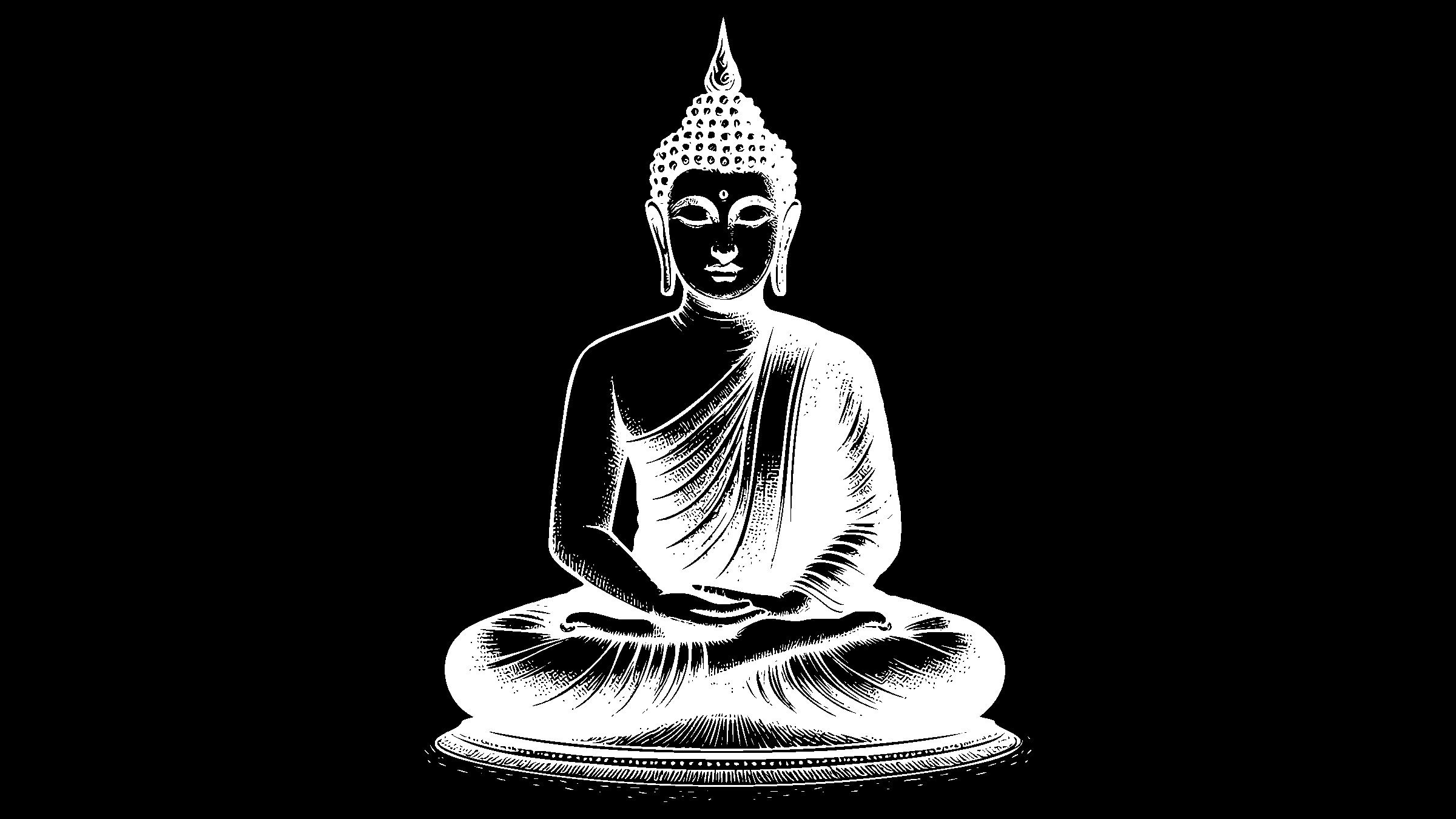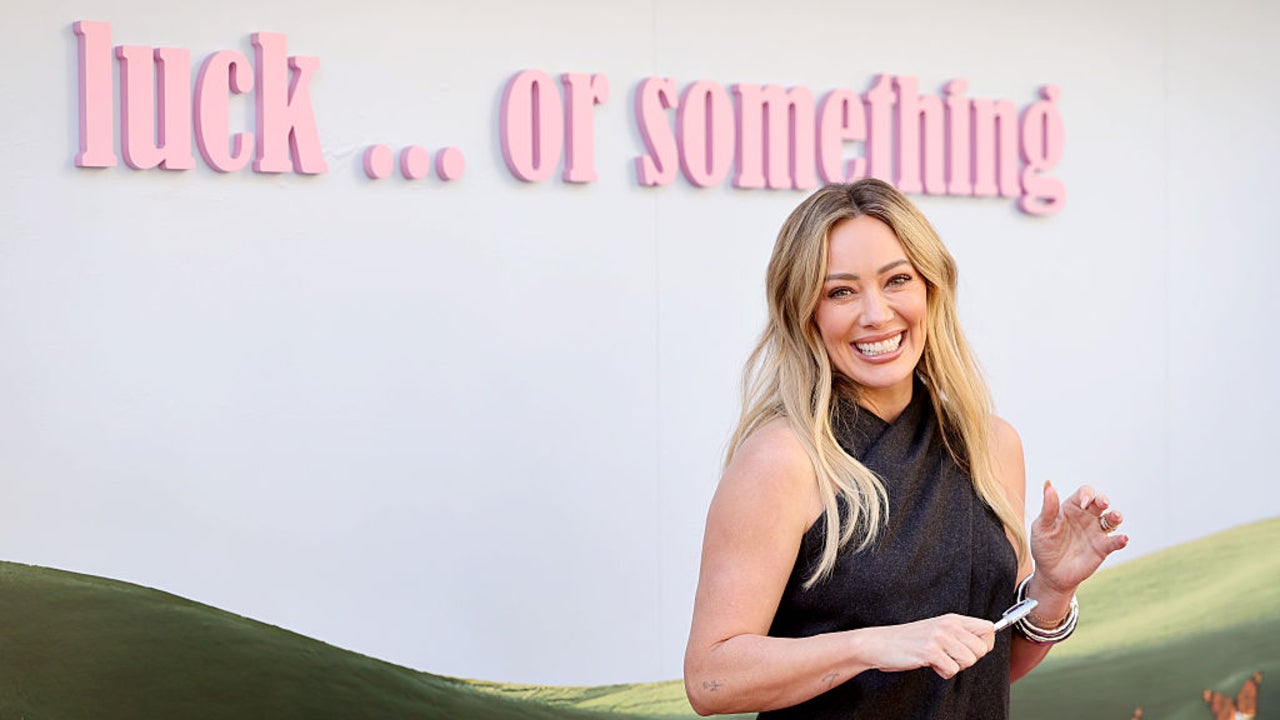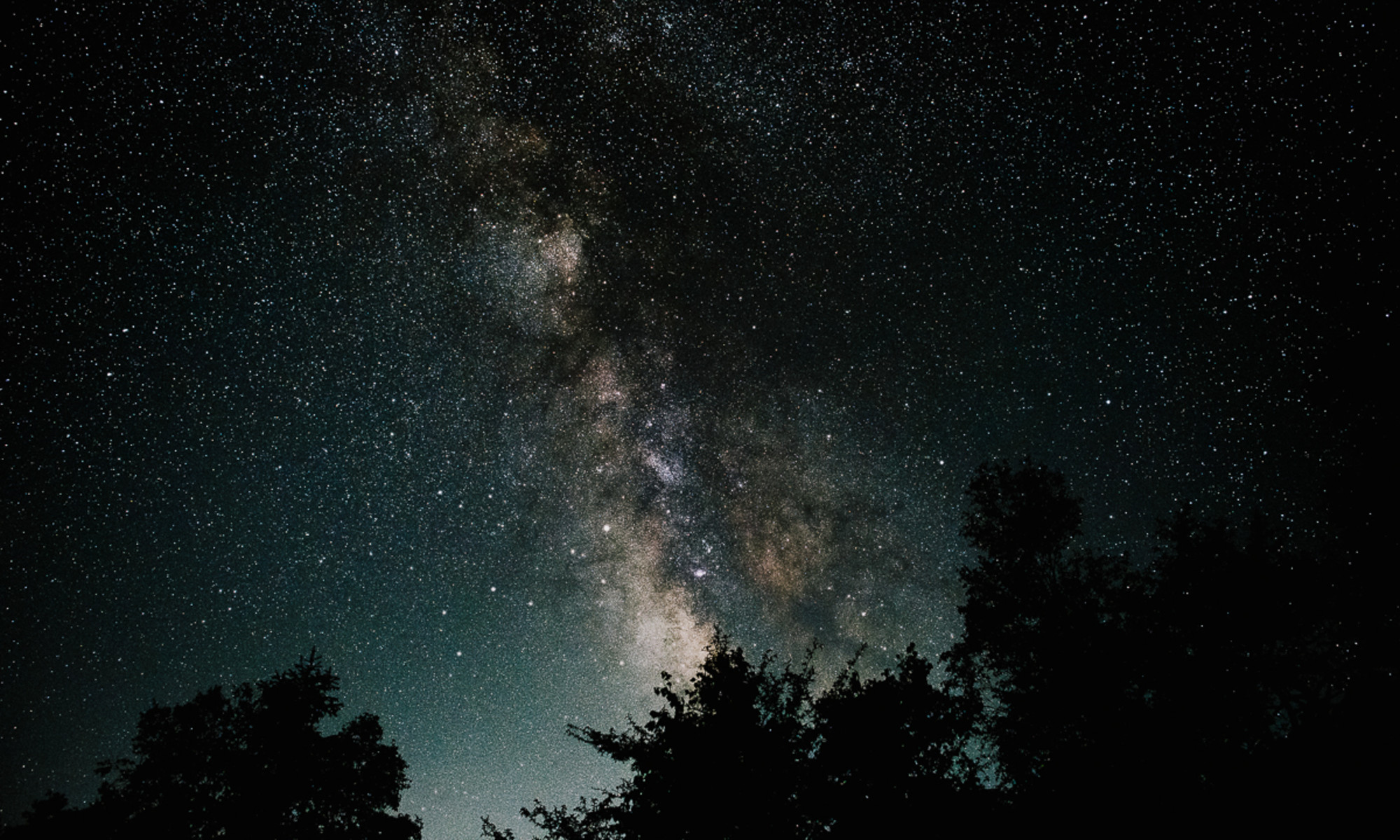Decentering the Self
US Poet Laureate Ada Limón discusses the transformative power of wonder and awe. The post Decentering the Self appeared first on Tricycle: The Buddhist Review.
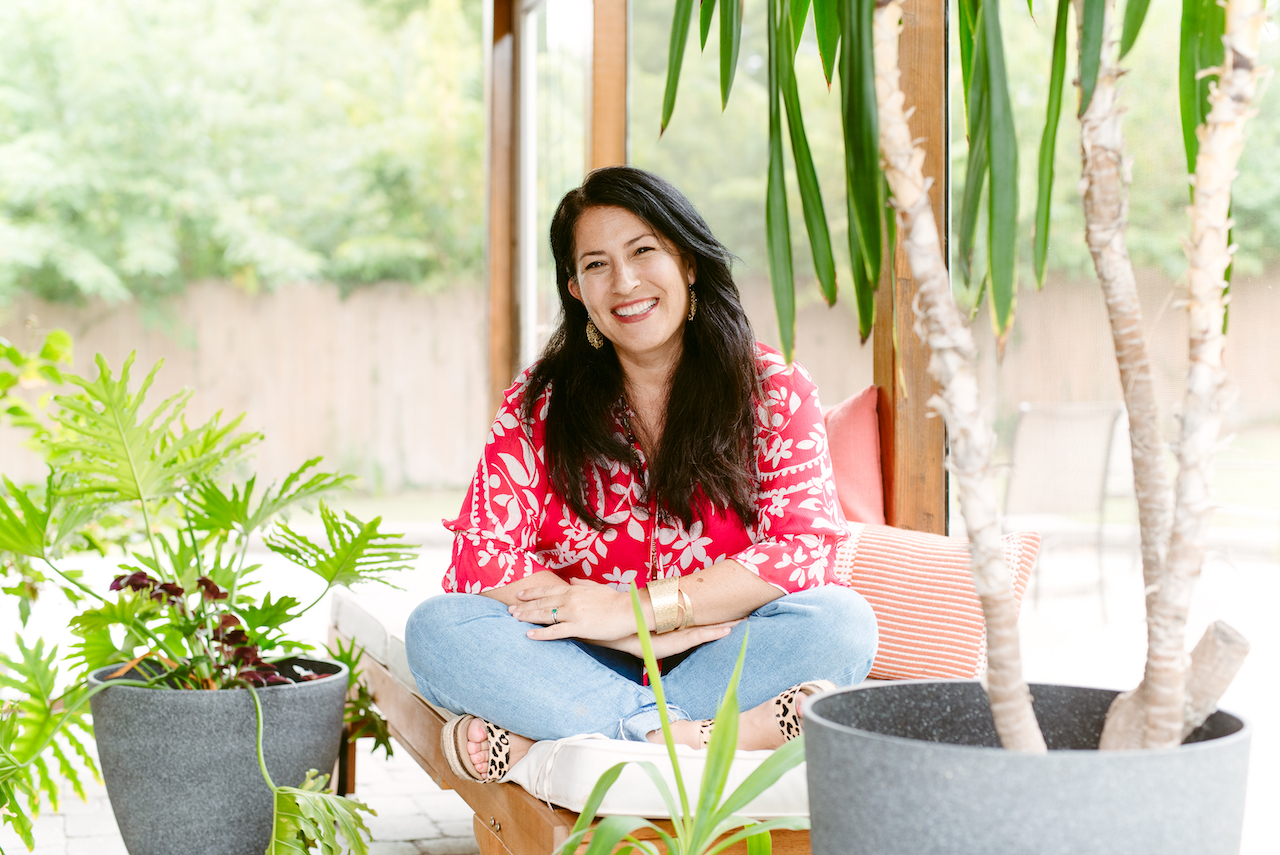
For US Poet Laureate Ada Limón, the task of the poet is to look—and keep looking. “There’s sometimes a misconception that poetry only deals with self and autobiography,” she told Tricycle. “But if you spend your life devoted to noticing and to looking, your sense of self begins to dissolve, because you’re looking outward, and then you recognize that things are looking back at you.”
Limón’s latest book, Startlement: New and Selected Poems, takes up this theme of witnessing and being witnessed, with a particular attention to how poetry can help foster greater awareness of our interconnectedness with the natural world. Bringing together nearly twenty years of Limón’s work, the collection traces what Limón calls “the original questions, the original curiosities” that keep coming up in her life and her practice.
In a recent episode of Life As It Is, Tricycle’s editor-in-chief, James Shaheen, and meditation teacher Sharon Salzberg sat down with Limón to discuss how poetry can help us decenter ourselves, her daily practice of loving-kindness, and how startlement can be a spiritual practice. Read an excerpt from their conversation below, along with three poems from Limón’s new collection.
James Shaheen (JS): Your new book is called Startlement, and the last time you were on the podcast, you talked about what it means to be creatures of constant awe. It seems like wonder and awe are recurring themes in your work. Do you think about startlement as a spiritual or meditative practice?
Ada Limón (AL): I do. I love to be amazed, and it’s easy to be. Life is really weird, and I don’t understand why we don’t talk about that enough. I think it’s because we don’t have the capacity to talk about all the strangeness all the time. But I am bewildered by existence on a regular minute-by-minute basis. I mean, we’re animals that wear clothes. That’s bizarre. So startlement is really just a way of naming amazement and bewilderment. I also started thinking of it as a collective noun. You know how we have collective nouns for birds, like a murmuration of starlings or a murder of crows or a rafter of turkeys? I kept thinking of the book as a startlement of poems.
JS: The last time you were on the podcast, you talked about what first brought you to spiritual practice, and you mentioned going to classes with Sharon at Tibet House. Now that Sharon is joining us, can you tell us about that experience again? How does loving-kindness influence your approach to poetry?
AL: At the risk of embarrassing you, Sharon, I’ll just say you changed my life. You continue to change my life. You’re with me daily. Loving-kindness is still the main meditation that I go to. I do it every day. When I first started meditating, I was desperate to find something, and I looked up and saw you were teaching at the Tibet House. I went for the free classes there, and it just became a practice. In fact, I brought my teacher, Marie Howe, there once, and we practiced together.
One of the great lessons I took away from your teaching was the idea of having some humor as you practice. As you taught, you had so much humor and humanity that I really related to the way you approached the practice, and it allowed for such a welcoming doorway that I could walk through. I’m still so grateful to you and your work and the way you brought loving-kindness into my world and continue to do so for many people. It’s still my main practice.
Sharon Salzberg (SS): Thank you so much. That’s really beautiful, and you’re inspiring me at this moment. One of the themes that emerges in this collection is an awareness of our interconnectedness with all beings, which is certainly something that a loving-kindness practice can bring attention to. So how can poetry cultivate greater awareness of interdependence?
AL: I think poetry, at its core, is about paying attention. When you’re deeply looking at something, you’re loving it. And I think that when you do that, whether it’s with a person or a nonhuman animal or a plant or a tree, it is a way of witnessing and being witnessed and recognizing that we are in this together.
It’s so strange to me that we feel alone. It’s a common feeling, and sometimes I feel so isolated in a particular emotion. But then if you really look around you, there’s no way to be alone. We are on this planet together—I mean, really together. And my work is always interested in that. That is a curiosity that comes up a lot, which is how can we constantly feel isolated when without a doubt we are working and living in tandem with all living beings.
As poets, that’s our job: to look, to notice, to witness, and to find language for it—and to recognize where language fails.
SS: Right, in one of your poems, you write, “We know now, / we were never at the circle’s center.” So how can poetry help us to decenter ourselves and notice all the other life forms living alongside us?
AL: You know, there’s sometimes a misconception that poetry only deals with self and autobiography, and it’s just about the artist’s gaze. But if you spend your life devoted to noticing and to looking, your sense of self begins to dissolve because you’re looking outward, and then you recognize that things are looking back at you, right? There’s the whole idea that birds notice us way before we notice them. They’ve been looking at us this whole time, and then we go, “Oh look, a bird.” I feel like recognizing that comes so naturally once you really start to pay attention. As poets, that’s our job: to look, to notice, to witness, and to find language for it—and to recognize where language fails.
I think that the practice of poetry is not unlike meditation, where it allows us to recognize that we’re not at the story’s center. You know, we’re not the hero. We’re part of a journey, and so many people are on that journey. And for me, there’s a surrender there that I resisted when I was younger. It gets easier as I age.
I was just thinking in the shower this morning, “Oh, I need some new clothes, because I’m going to go on book tour.” And then I said, “Well, maybe it’s not my clothes that are the problem. Maybe it’s my body.” And then my mind said, “Or maybe the body’s not the problem. Maybe it’s your mind.” And then of course I started laughing. And I do think that the more you pay attention to your own thoughts, the more absurd it all seems. Just like you have always done in your teachings, Sharon, you have a sense of humor about it. So I think that paying attention offers us much more than we think—it turns out it really helps.
JS: You mentioned Marie Howe, and she talks about how writing poetry is a way of opening up space to listen to the natural world. I wonder if that resonates with your experience as a writer.
AL: Yeah, what an exceptional teacher and poet and human being. I think that opening up to the natural world is the idea that we are nature. Sometimes my initial reaction to the natural world is to name and identify. In first grade, we had to sit in a little square outside, and we had to describe all the things that we could name: the types of plants, the types of bugs, everything we saw in this little square. And so sometimes I have that relationship, where I go, What’s this? What is the name of this? I need to know it. And then there are times where I am having an experience where I don’t want to know the name that we’ve given it; I want to see if the plant tells me its name. Or I don’t even want to have anything to do with language; I just want to have an experience with this creek, and I just want to be part of it. And so I think that poetry is that doorway, because even though we value language as this signifier and we value image and metaphor and symbols, poetry really recognizes where language fails, where it falls apart. And that’s where the breath is, right? That’s the line breaks and the caesuras and the stanzas. That’s where we breathe. And that’s that place where we don’t have the language for it. There’s so much of my experience with nature that goes beyond words, and poetry makes space for that.
JS: Right, your poems explore the limits of language, and you mentioned how language can sometimes get between us and what is. So can you say more about how poetry can press against the limits of language?
AL: Yeah, I think because in many ways poetry is music, right? It’s sonic; it’s lyrical. Often, when we can’t get at an image with the exactness of language, we can produce music that is paying homage to the memory or the idea or thought or thread that the poem is representing. And so the music becomes equally as important, and the words sometimes aren’t necessarily the thing, but it’s the hearing. It’s that musicality. When we let go of language and its meaning, we are leaning into the sonics and the songlike quality of poetry.
This interview has been edited for length and clarity.
Startlement
It is a forgotten pleasure, the pleasure
of the unexpected blue-bellied lizard
skittering off his sun spot rock, the flicker
of an unknown bird by the bus stop.
To think, perhaps, we are not distinguishable
and therefore no loneliness can exist here.
Species to species in the same blue air, smoke—
wing flutter buzzing, a car horn coming.
So many unknown languages, to think we have
only honored this strange human tongue.
If you sit by the riverside, you see a culmination
of all things upstream. We know now,
we were never at the circle’s center, instead
all around us something is living or trying to live.
The world says, What we are becoming, we are
becoming together.
The world says, One type of dream has ended
and another has just begun.
The world says, Once we were separate,
and now we must move in unison.
The Endlessness
At first I was lonely, but then I was
curious. The original fault was that I could
not see the lines of things. My mother could.
She could see shapes and lines and shadows,
but all I could see was memory, what had been
done to the object before it was placed on
the coffee table or the nightstand. I could sense
that it had a life underneath it. Because
of this, I thought I was perhaps bad at seeing. Even
color was not color, but a mood. The lamp was
sullen, a candlestick brooding and rude with its old
wax crumbling at its edges, not flame, not a promise
of flame. How was I supposed to feel then? About
moving in the world? How could I touch anything
or anyone without the weight of all of time shifting
through us? I was not, or I did not think I was, making
up stories; it was how the world was, or rather it is how
the world is. I’ve only now become better at pretending
that there are edges, boundaries, that if I touch
something it cannot always touch me back.
Literary Theory
Somehow the word
allow is in the word
swallow and in swallow
two wholly different meanings:
one to take in through
the mouth and another
what we call the common
winged gnat hunter who
is, in all probability,
somewhere near us now.
Once, I thought
if I knew all the words
I would say the right thing
in the right way,
instead language becomes
more brutish: blink twice
for the bird, blink once
for tender annihilation. Who
knows what we are doing as
we go about our days lazily
choosing our languages. Some
days my life is held together
by definitions, some days
I read the word swallow
and all my feathers show.
♦
“Startlement,” “The Endlessness,” and “Literary Theory” from Startlement: New and Selected Poems (Minneapolis: Milkweed Editions, 2025). Copyright © 2025 by Ada Limón. Reprinted with the permission of Milkweed Editions, milkweed.org.

 Hollif
Hollif 







